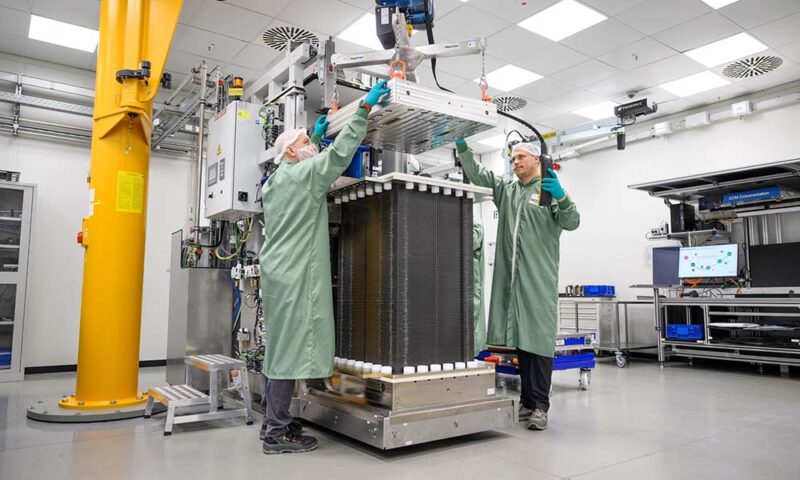
Bosch’s industrial excellence ensures scalability of hydrogen production
Whether in chemicals, transportation, steel, or energy industries, there is enormous potential for decarbonization if hydrogen is used as an energy source, especially if it is produced using renewables.
With an expected global capacity of 100–170 gigawatts by 2030, electrolysis is a strategic growth field for Bosch, despite the slowdown in the ramp-up of the hydrogen economy, according to a press release.
To mark its entry into this market, the company is showcasing technology for electrolyzers at Hannover Messe 2025. Bosch is premiering two Hybrion PEM (proton exchange membrane) electrolysis stacks as a modular container solution integrated into an electrolysis system. Such stacks are at the heart of the electrolyzer.
Climate change
“To counter climate change, we need alternatives to fossil fuels. Green hydrogen, produced with renewable energy, will play a vital role in massively reducing carbon emissions in the industrial, transport, and energy sectors. Producing this hydrogen requires electrolysis systems and Bosch’s Hybrion stack is the key component for them,” stated Dr. Stefan Hartung, Chairman, Board of Management, Robert Bosch GmbH.
Bosch aims to apply its fuel-cell expertise to hydrogen production. “Hydrogen is a strategic growth field for Bosch, we expect sales revenue to run into the billions by 2030,” concluded Dr. Markus Heyn, Member, Board of Management and Chairman, Bosch Mobility.
